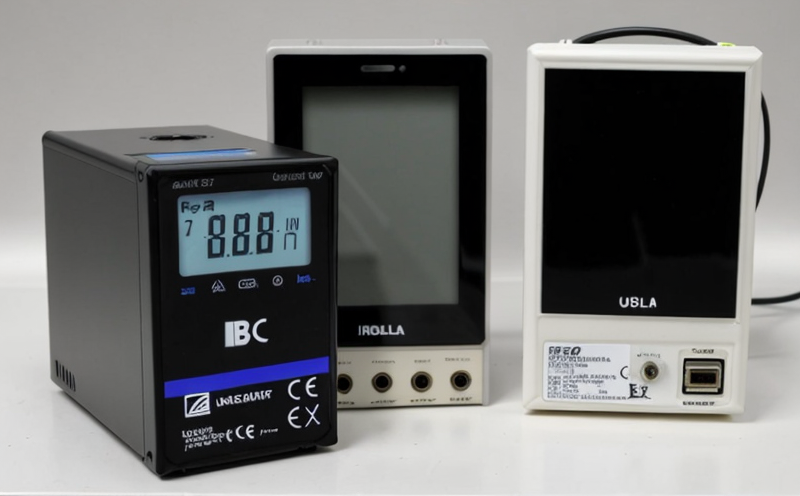IEC 62133-2 Consumer Electronics Lithium-Ion Battery Safety Testing
The IEC (International Electrotechnical Commission) standard, specifically IEC 62133-2, is a globally recognized framework that ensures the safety of lithium-ion batteries used in consumer electronics. This standard covers a wide array of tests designed to evaluate the reliability and safety of these batteries under various conditions.
The scope of this service extends beyond just compliance; it encompasses rigorous testing protocols aimed at identifying potential hazards such as overcharging, overheating, short circuits, mechanical abuse, and other critical factors that could lead to battery failure. By adhering strictly to IEC 62133-2 guidelines, manufacturers can ensure their products meet the highest safety standards.
The testing process involves several key steps:
- Initial Inspection: Before any tests are conducted, each battery undergoes a thorough visual inspection to identify any visible defects or damages that could compromise its integrity.
- Overcharging Test: This test simulates the scenario where batteries might be overcharged during use. It evaluates whether the battery can handle prolonged charging without overheating or exploding.
- Discharge Rate Testing: Here, the battery’s ability to deliver power efficiently at different discharge rates is assessed. This helps in understanding how well the battery performs under load conditions typical of consumer electronics devices.
- Fall Test: In this test, batteries are subjected to a simulated drop from a certain height onto a concrete surface. It checks for structural integrity and prevents physical damage that could affect performance or safety.
The results of these tests provide critical insights into the battery's durability, efficiency, and overall safety profile. Compliance with IEC 62133-2 not only enhances product reliability but also fosters trust among consumers regarding the safety features built into their devices.
Our laboratory uses state-of-the-art equipment calibrated to meet these stringent standards, ensuring accurate and reliable test results every time. With our expertise in this field, we can help you navigate the complexities of IEC 62133-2 testing effectively.
Benefits
- Enhanced Safety: Ensures that batteries are safe under various operational conditions, reducing risks associated with overheating or short circuits.
- Compliance Assurance: Helps manufacturers meet regulatory requirements and avoid costly penalties related to non-compliance.
- Better Product Quality: Identifies potential issues early in the development process, allowing for necessary improvements before mass production begins.
Eurolab Advantages
At Eurolab, our commitment to excellence in battery testing is reflected not only in our adherence to international standards like IEC 62133-2 but also through our unwavering dedication to quality and precision.
We employ highly skilled technicians who are trained specifically for lithium-ion battery testing. Our advanced instrumentation allows us to conduct tests that go beyond mere compliance, providing deeper insights into the performance capabilities of your batteries.
Our facilities are equipped with the latest technology, ensuring that our tests are conducted under controlled and reproducible conditions. This precision is crucial in delivering accurate results that reflect real-world scenarios accurately.
We pride ourselves on offering a seamless service experience from initial consultation to final report delivery. Our transparent communication ensures you stay informed throughout the testing process.
Customer Impact and Satisfaction
By partnering with Eurolab for IEC 62133-2 consumer electronics lithium-ion battery safety testing, customers can expect several significant benefits:
- Increased Market Confidence: Demonstrating compliance through rigorous testing enhances brand reputation and instills confidence among consumers.
- Competitive Edge: Meeting stringent international standards positions your product as a leader in safety and reliability, potentially giving you an edge over competitors.
- Risk Mitigation: Identifying potential hazards early allows for corrective actions to be taken proactively rather than reactively, thereby minimizing risks associated with battery failures.
Our clients consistently report high levels of satisfaction with our services, praising both the quality and speed of our work. We take pride in helping our customers achieve their goals by providing reliable data that supports informed decision-making.





